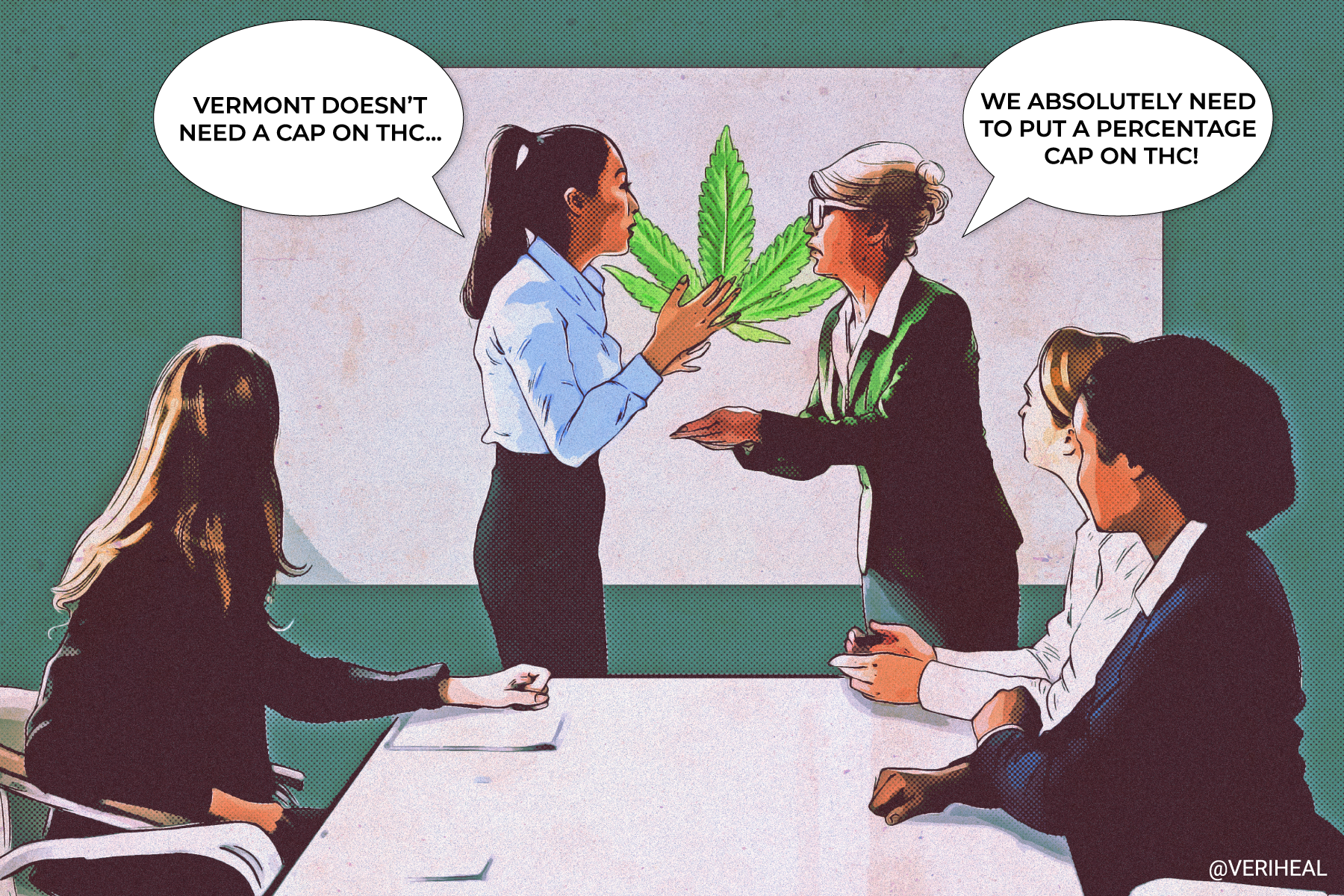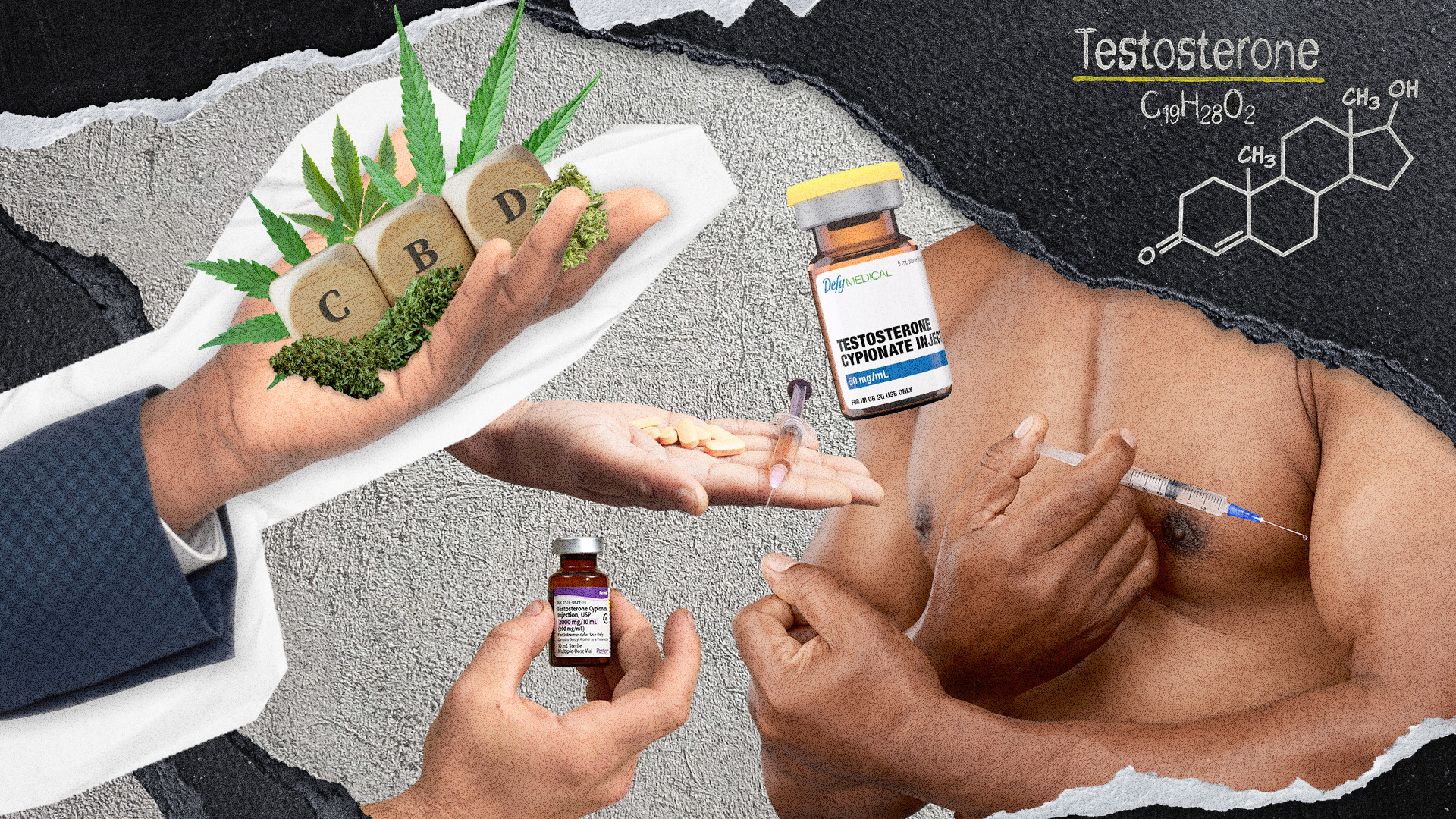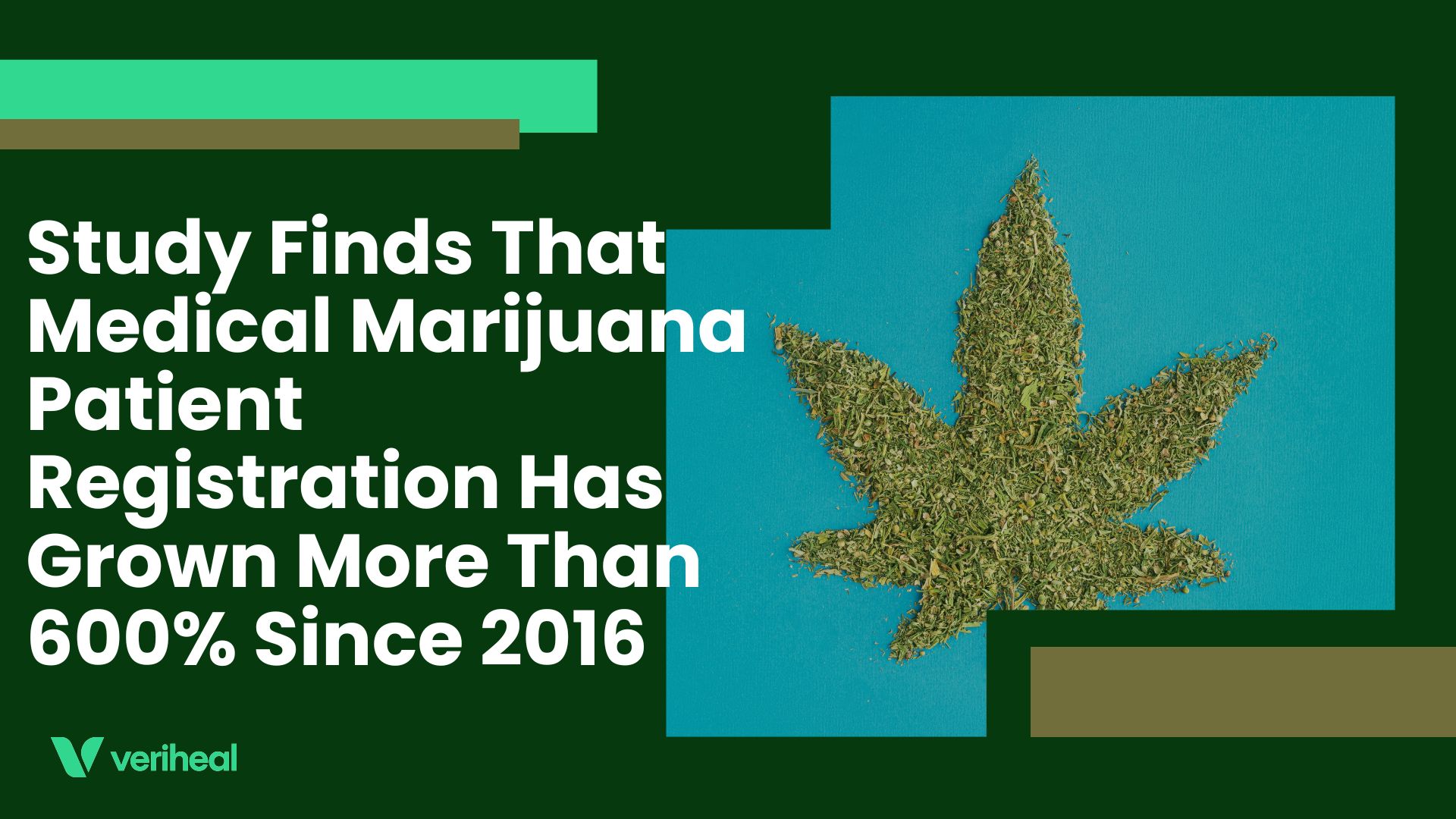A suggested 15% tetrahydrocannabinol (THC) potency cap for cannabis products in Vermont’s adult-use cannabis market has been dismissed after a strong debate among the Vermont legislature.
The state’s leading physician advocacy group, the Vermont Medical Society, initially issued the rejected recommendations to the Cannabis Control Board. However, following much deliberation, board members decided that the current 30% statutory cap on THC concentration in cannabis flower is appropriate.
According to members of the Vermont Medical Society, THC—the primary psychotropic cannabinoid found in cannabis—may impair a person’s ability to drive, harm fetuses, cause addiction, and contribute to psychotic disorders. However, many of these myths have already been dispelled.
Vermont Physicians Push for Low-Potency Cannabis
In addition to its failed attempt to lower the cannabis potency cap in Vermont, the Vermont Medical Society also wanted to ban any products containing more than 15% THC. “Marijuana use is a significant public health problem in Vermont, and it is getting worse,” argued the state’s health department, which fears that THC may pose more of a risk than a benefit for individuals who do not consume the plant as frequently as others.
Vermont has already introduced a potency cap for its looming recreational cannabis legalization market, with flower capped at 30% and THC and concentrates capped at 60%. Interestingly, medical cannabis products in Vermont are not restricted based on their level of cannabinoid potency. At the current time, Vermont is the only U.S. state to impose THC potency limits.
The rules won’t be effectuated until they are filed with the secretary of state’s office, at which point they will need to be publicly commented on and reviewed by the legislature so as to ensure that they remain consistent with the state’s adult-use cannabis law.
Why You Should Get Your Medical Marijuana Card
Veriheal has satisfied millions of patients nationwide by giving them access to these benefits
- Larger purchase limits
- Peace of mind
- Enhanced legal protection
- Access to higher potency strains
- Save up to 25% on cannabis purchases
- Skip the line at the dispensary
Recreational Cannabis Sales in Vermont Set to Begin in May
Adult-use cannabis was officially legalized in Vermont in 2018 with the passing of House Bill 511, a revised version of an earlier bill. Medical cannabis was legalized 14 years prior in 2004. However, qualifying patients were forced to wait until 2013 to access the state’s licensed dispensaries for their medicine.
The law evolved to become what is now known as Act 86. This legislation permits cannabis possession up to 1 ounce, in addition to two mature and four immature cannabis plants for adults aged 21 and above. Public cannabis consumption is prohibited, as well as the use of the plant in spaces where tobacco smoking is forbidden.
Retail cannabis stores are set to open their doors in the spring of 2022. For the time being, only registered medical cannabis patients can access legal cannabis. When the eagerly anticipated moment happens, consumers can expect the following:
- Small-scale businesses: Rather than allowing experienced large-scale growers to dominate the market, the state will open the floodgates for smaller cannabis farmers. During the program’s early stages, licenses will only be awarded for indoor greenhouse facilities and outdoor grow sites not exceeding 1,000 square feet.
- Social equity: According to the Cannabis Control Board, people who have been “disadvantaged by the criminalization of cannabis” and people of color will be granted the privilege of obtaining loans and having fees waived as part of the social equity program.
- Existing grower involvement: Provisional licenses will be dished out for cultivators who are already operating in Vermont’s medical cannabis market.
- Minimum 20% state tax: In addition to a 6% state sales tax, Vermont will tax cannabis products at 14%. What’s more, a 1-2% tax will be tacked onto the price of cannabis products.
Vermont Lawmakers Keen to Decriminalize Drug Possession
News of the Cannabis Control Board’s refusal to lower THC potency limits comes after Vermont Democratic and Progressive lawmakers submitted a new bill to decriminalize drug possession. Should the harm reduction policy be approved, it stands to help manage and reduce racial disparities in enforcement.
Introduced by Reps. Logan Nicoll and Selene Colburn, the legislation would make the distribution and possession of personal-use amounts of illegal substances punishable by a $50 fine without the risk of jail time. Since July 1, 2018, adults aged 21 and older have been legally allowed to possess 1 ounce of cannabis, two mature plants, four immature plants, and 5 grams of hashish.
Projections featured in the 2021 MJBizFactbook suggest that Vermont’s adult-use cannabis program could be generating $145 million in revenue by its fourth year of operation.
Author, Share & Comments















